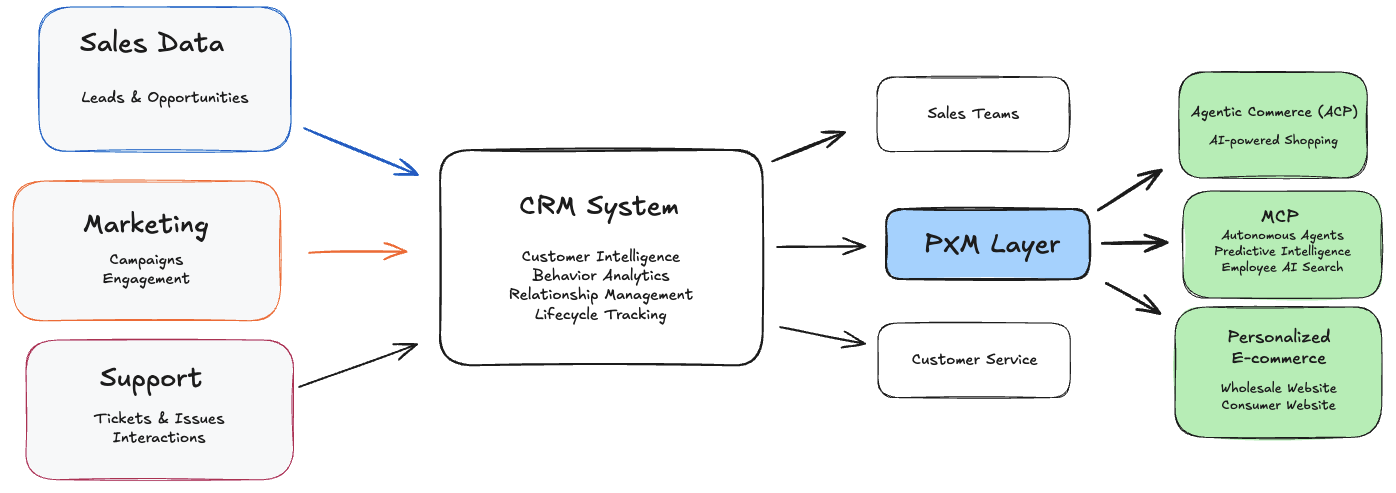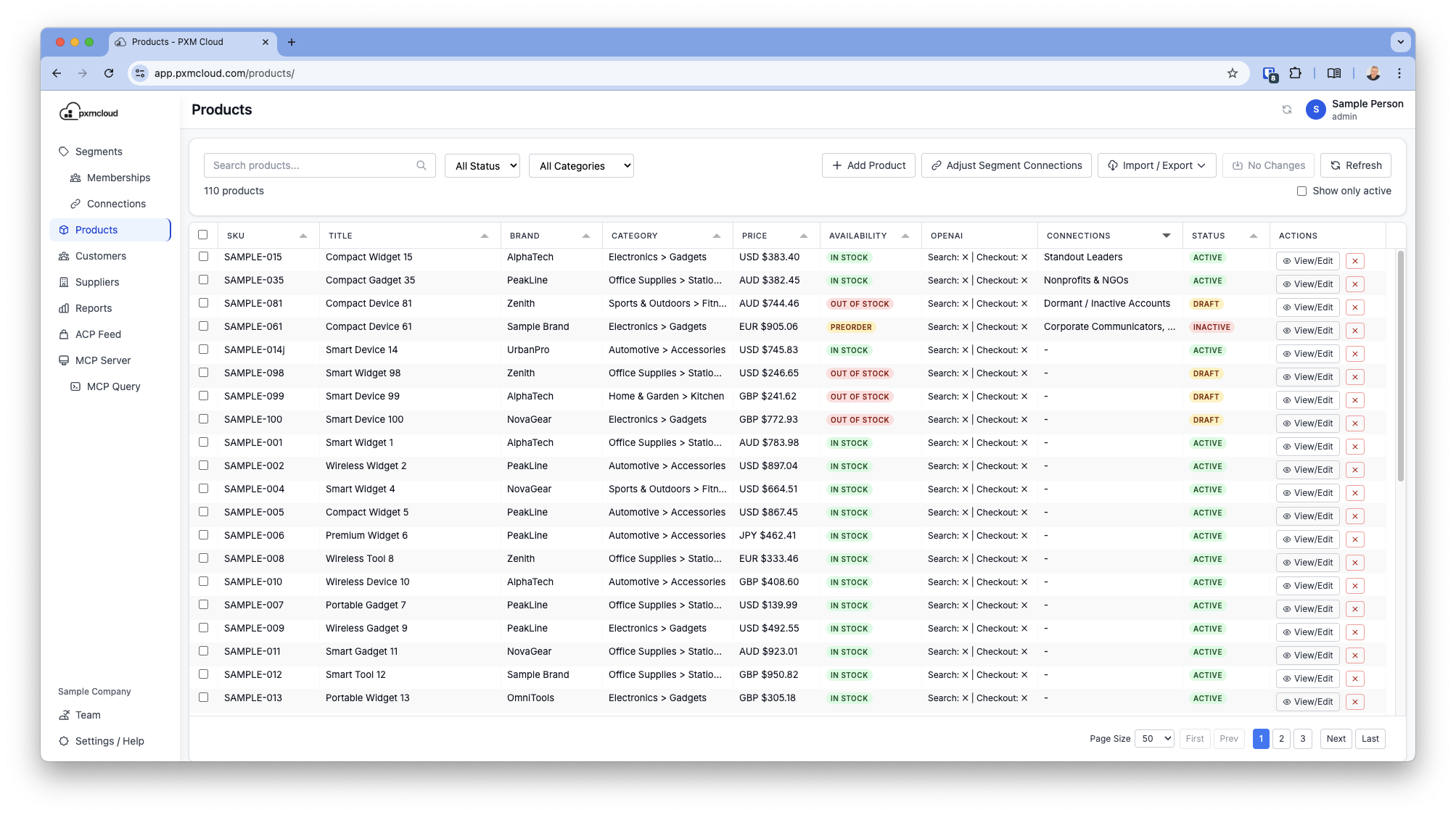What is Customer Relationship Management?
CRM
Customer Relationship Management (CRM) is a comprehensive system designed to centralize, organize, and manage all customer-related information and interactions across an organization. A CRM system serves as the single source of truth for customer data, including contact information, communication history, purchase behavior, preferences, support interactions, and lifecycle stage information.
Unlike scattered spreadsheets, email systems, or individual sales tools, CRM ensures consistency, accuracy, and completeness across all customer touchpoints. It supports complex workflows including lead management, sales processes, customer service, marketing automation, and multi-team collaboration, enabling organizations to maintain strong customer relationships while scaling their business operations efficiently.
CRM is essential for any organization focused on customer acquisition, retention, and growth where understanding customer needs and delivering personalized experiences are critical to business success.
How CRM Systems Can Be Used
CRM systems serve multiple critical functions within modern business operations:
Customer Data Centralization
Consolidate customer information from multiple sources (sales, marketing, support, e-commerce) into a single, authoritative repository. Eliminate data silos and ensure all teams work with the same, up-to-date customer information.
Sales Pipeline Management
Track leads through the entire sales process from initial contact to close. Manage opportunities, forecast revenue, and optimize sales performance with automated workflows and reporting.
Marketing Automation
Execute targeted marketing campaigns based on customer behavior, preferences, and lifecycle stage. Automate email sequences, lead nurturing, and personalized content delivery across multiple channels.
Customer Service & Support
Provide comprehensive customer support with complete interaction history, ticket management, and knowledge base integration. Enable self-service options and proactive customer outreach.
Analytics & Reporting
Generate insights into customer behavior, sales performance, and marketing effectiveness. Create custom dashboards and reports to drive data-driven business decisions.
Integration & Scalability
Connect with other business systems (ERP, e-commerce, marketing tools) to create a unified customer view. Scale operations while maintaining personalized customer experiences.
Industries Where CRM is Critical
CRM systems are essential across numerous industries, each with unique customer relationship requirements and challenges:
Sales & Business Development
Why CRM matters: Managing complex sales cycles, multiple stakeholders, and long-term relationship building requires systematic customer data management.
Examples: B2B sales teams tracking enterprise deals and decision-makers; Real estate agents managing client portfolios and property preferences; Financial advisors maintaining client investment profiles and communication history.
E-commerce & Retail
Why CRM matters: Personalizing customer experiences, managing loyalty programs, and optimizing conversion rates across multiple touchpoints.
Examples: Online retailers implementing personalized product recommendations; Fashion brands managing customer style preferences and size history; Subscription services tracking customer usage patterns and renewal cycles.
Professional Services
Why CRM matters: Managing client relationships, project delivery, and ongoing service requirements with detailed interaction tracking.
Examples: Law firms tracking case history and client communications; Consulting firms managing client projects and deliverables; Marketing agencies handling multiple client campaigns and performance metrics.
Healthcare & Medical
Why CRM matters: Managing patient relationships, appointment scheduling, and care coordination while maintaining compliance and privacy requirements.
Examples: Medical practices tracking patient history and treatment plans; Healthcare systems managing provider networks and patient referrals; Medical device companies managing customer support and training programs.
Technology & SaaS
Why CRM matters: Managing customer onboarding, support tickets, and subscription renewals with detailed usage analytics and customer success tracking.
Examples: Software companies tracking customer implementation and adoption; SaaS platforms managing subscription lifecycles and churn prevention; Technology consultancies managing client digital transformation projects.
Financial Services
Why CRM matters: Managing complex client relationships, regulatory compliance, and long-term financial planning with detailed interaction history.
Examples: Banks managing customer accounts and loan applications; Insurance companies tracking policyholders and claims; Investment firms managing client portfolios and communication preferences.
CRM's Relationship to Product Information Management
CRM provides the customer intelligence that enhances Product Information Management (PIM) and powers Product Experience Management (PXM). While CRM focuses on customer relationships and behavior, PIM ensures product data accuracy, and PXM creates personalized customer experiences.
Think of CRM as the customer intelligence layer that understands who customers are and what they need. PIM is the product data foundation that ensures all product information is accurate and complete. PXM is the experience layer that combines customer insights with product data to create compelling, personalized experiences. Together, they create a powerful ecosystem where customer understanding enables exceptional product experiences.
Learn more about how CRM, PIM, and PXM work together in our comprehensive overview of the complete customer and product management ecosystem.

Key Benefits of Implementing CRM
Customer Relationship Enhancement
Build stronger, more personalized relationships with customers through comprehensive interaction tracking, preference management, and lifecycle understanding.
Sales Performance Optimization
Increase sales efficiency with automated lead management, pipeline tracking, and performance analytics. Enable sales teams to focus on high-value activities.
Marketing Effectiveness
Execute targeted marketing campaigns based on customer behavior and preferences. Improve conversion rates and reduce marketing waste through data-driven insights.
Customer Service Excellence
Provide superior customer support with complete interaction history, automated ticket routing, and proactive customer outreach capabilities.
Data-Driven Decision Making
Generate actionable insights from customer behavior, sales performance, and marketing effectiveness to drive strategic business decisions.
Revenue Growth & Retention
Increase customer lifetime value through better relationship management, personalized experiences, and proactive retention strategies.
Tip: Start with a CRM implementation to establish strong customer relationships as your foundation. This enables effective PIM integration and creates a scalable platform for PXM strategies.

